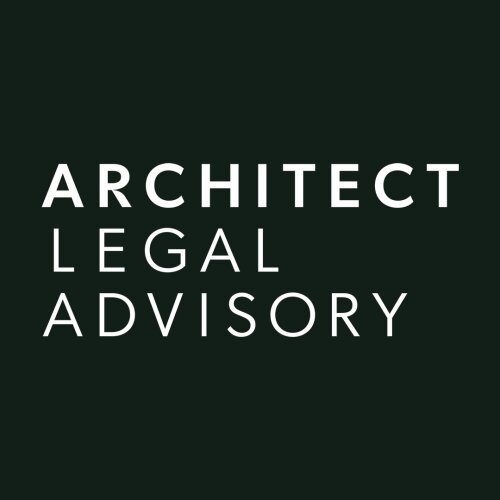Best Biotechnology Lawyers in Seoul
Share your needs with us, get contacted by law firms.
Free. Takes 2 min.
List of the best lawyers in Seoul, South Korea
About Biotechnology Law in Seoul, South Korea:
Biotechnology in Seoul, South Korea is a rapidly growing industry that involves the use of biological systems and organisms to develop products and technologies that benefit society. The legal landscape surrounding biotechnology is complex and ever-evolving, making it crucial for individuals and companies in this sector to seek legal advice to navigate the laws and regulations effectively.
Why You May Need a Lawyer:
There are several situations where individuals or companies in the biotechnology sector may require legal assistance. This could include drafting and negotiating licensing agreements, protecting intellectual property rights, complying with regulatory requirements, resolving disputes with partners or competitors, and navigating complex international laws related to biotechnology.
Local Laws Overview:
In Seoul, South Korea, several key aspects of local laws are particularly relevant to biotechnology. This includes regulations surrounding the research, development, and commercialization of biotechnological products, as well as intellectual property laws that govern patents, trademarks, and trade secrets in this sector. It is essential for individuals and companies in biotechnology to have a thorough understanding of these laws to ensure compliance and protect their interests.
Frequently Asked Questions:
1. What are the regulatory requirements for biotechnology research in Seoul, South Korea?
Biotechnology research in Seoul, South Korea is subject to strict regulatory requirements set forth by the Ministry of Food and Drug Safety (MFDS) and the Ministry of Health and Welfare. Researchers must comply with these regulations to ensure the safety and ethical standards of their research.
2. How can I protect my intellectual property rights in the biotechnology sector?
Individuals and companies in the biotechnology sector can protect their intellectual property rights through patents, trademarks, and trade secrets. It is crucial to work with a lawyer who specializes in intellectual property law to ensure proper protection of these rights.
3. What are the legal implications of biotechnology collaborations and partnerships?
Collaborations and partnerships in biotechnology can involve complex legal agreements that outline each party's rights and obligations. It is important to work with a lawyer to draft and negotiate these agreements to protect your interests.
4. How can I ensure compliance with international biotechnology laws?
Compliance with international biotechnology laws requires a thorough understanding of the regulations in different jurisdictions. A lawyer with expertise in international biotechnology law can help ensure compliance with these laws.
5. What legal issues may arise in biotechnology product commercialization?
Legal issues that may arise in biotechnology product commercialization include licensing agreements, distribution agreements, product liability, and regulatory compliance. It is essential to work with a lawyer to address these issues effectively.
6. How can I resolve disputes with partners or competitors in the biotechnology sector?
Disputes with partners or competitors in the biotechnology sector can be resolved through negotiation, mediation, or litigation. A lawyer experienced in biotechnology law can help you navigate these disputes and protect your interests.
7. What are the potential consequences of non-compliance with biotechnology regulations?
Non-compliance with biotechnology regulations can result in fines, legal action, reputational damage, and even criminal charges. It is crucial to stay informed about the regulations and work with a lawyer to ensure compliance.
8. How can I protect my trade secrets in the biotechnology sector?
Trade secrets in the biotechnology sector can be protected through confidentiality agreements, restricted access to sensitive information, and employee training on safeguarding trade secrets. A lawyer can help you develop a comprehensive strategy to protect your trade secrets.
9. What are the procedures for biotechnology patent applications in Seoul, South Korea?
Biotechnology patent applications in Seoul, South Korea follow specific procedures outlined by the Korean Intellectual Property Office (KIPO). It is advisable to work with a lawyer who specializes in patent law to navigate the application process effectively.
10. How can I ensure compliance with data protection laws in the biotechnology sector?
Compliance with data protection laws in the biotechnology sector requires adherence to regulations surrounding the collection, storage, and use of personal data. A lawyer with expertise in data protection laws can help you ensure compliance and mitigate risks related to data handling.
Additional Resources:
For individuals and companies seeking legal advice in the field of biotechnology in Seoul, South Korea, the following resources may be helpful:
- Korean Intellectual Property Office (KIPO) - Seoul Metropolitan Government - Korea Biotechnology Industry Organization (KoreaBIO) - Korea Food and Drug Administration (KFDA)
Next Steps:
If you require legal assistance in the field of biotechnology in Seoul, South Korea, it is recommended to consult with a lawyer who specializes in biotechnology law. A qualified lawyer can provide personalized guidance and advice tailored to your specific needs and help you navigate the legal complexities of the biotechnology industry effectively.
Lawzana helps you find the best lawyers and law firms in Seoul through a curated and pre-screened list of qualified legal professionals. Our platform offers rankings and detailed profiles of attorneys and law firms, allowing you to compare based on practice areas, including Biotechnology, experience, and client feedback.
Each profile includes a description of the firm's areas of practice, client reviews, team members and partners, year of establishment, spoken languages, office locations, contact information, social media presence, and any published articles or resources. Most firms on our platform speak English and are experienced in both local and international legal matters.
Get a quote from top-rated law firms in Seoul, South Korea — quickly, securely, and without unnecessary hassle.
Disclaimer:
The information provided on this page is for general informational purposes only and does not constitute legal advice. While we strive to ensure the accuracy and relevance of the content, legal information may change over time, and interpretations of the law can vary. You should always consult with a qualified legal professional for advice specific to your situation.
We disclaim all liability for actions taken or not taken based on the content of this page. If you believe any information is incorrect or outdated, please contact us, and we will review and update it where appropriate.












